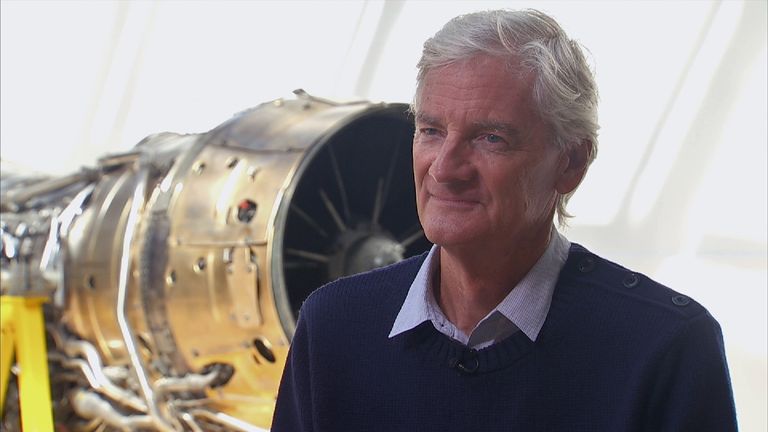Dyson reveals plans to build electric car by 2020
The British company, which is most famous for its bagless vacuum cleaners, says it intends to spend 拢2bn on the project.
Tuesday 26 September 2017 19:22, UK
British vacuum company Dyson is to branch out into electric cars.
The firm's chief executive Sir James Dyson told employees in an email that a team had secretly been working on plans for an all-electric vehicle for more than two years.
It hopes to launch its first model by 2020.
::
The company has committed to spending £2bn on developing solid-state battery technology to power the vehicles.
Four hundred engineers are already tackling the project at its global headquarters in Malmesbury, Wiltshire, and Dyson is "recruiting aggressively" to expand the team.
Dyson already employs around 3,500 people in the UK, and that figure is expected to almost double in the coming four or five years.
In his email to staff, Sir James said his ambition was to "find a solution to the global problem of air pollution".
"We finally have the opportunity to bring all our technologies together into a single product," he said.
"Rather than filtering emissions at the exhaust pipe, today we have the ability to solve it at the source."
However, the businessman stressed the importance of keeping the details of its car secret.
"Competition for new technology in the automotive industry is fierce and we must do everything we can to keep the specifics of our vehicle confidential."
Indeed, many existing automotive companies are also making the move towards electric vehicles.
Jaguar Land Rover that all of its models will be either electric or hybrid from 2020, and Volvo intends to from 2019.
The trend comes after the Government confirmed plans to in the UK from 2040 - with the aim of getting them off the roads altogether by 2050.





